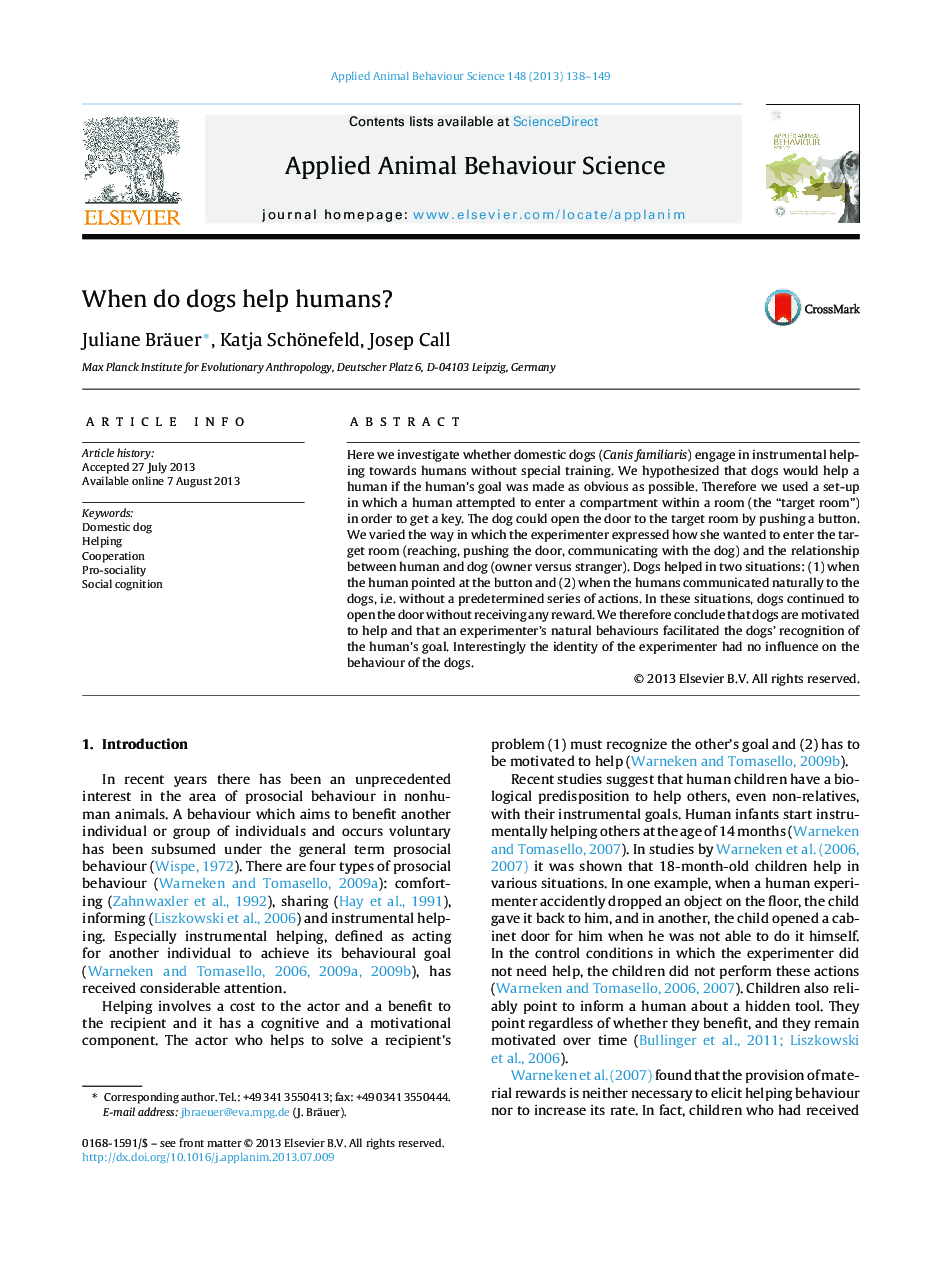| Article ID | Journal | Published Year | Pages | File Type |
|---|---|---|---|---|
| 4522704 | Applied Animal Behaviour Science | 2013 | 12 Pages |
Here we investigate whether domestic dogs (Canis familiaris) engage in instrumental helping towards humans without special training. We hypothesized that dogs would help a human if the human's goal was made as obvious as possible. Therefore we used a set-up in which a human attempted to enter a compartment within a room (the “target room”) in order to get a key. The dog could open the door to the target room by pushing a button. We varied the way in which the experimenter expressed how she wanted to enter the target room (reaching, pushing the door, communicating with the dog) and the relationship between human and dog (owner versus stranger). Dogs helped in two situations: (1) when the human pointed at the button and (2) when the humans communicated naturally to the dogs, i.e. without a predetermined series of actions. In these situations, dogs continued to open the door without receiving any reward. We therefore conclude that dogs are motivated to help and that an experimenter's natural behaviours facilitated the dogs’ recognition of the human's goal. Interestingly the identity of the experimenter had no influence on the behaviour of the dogs.
